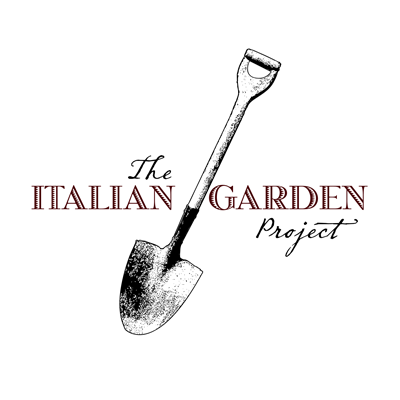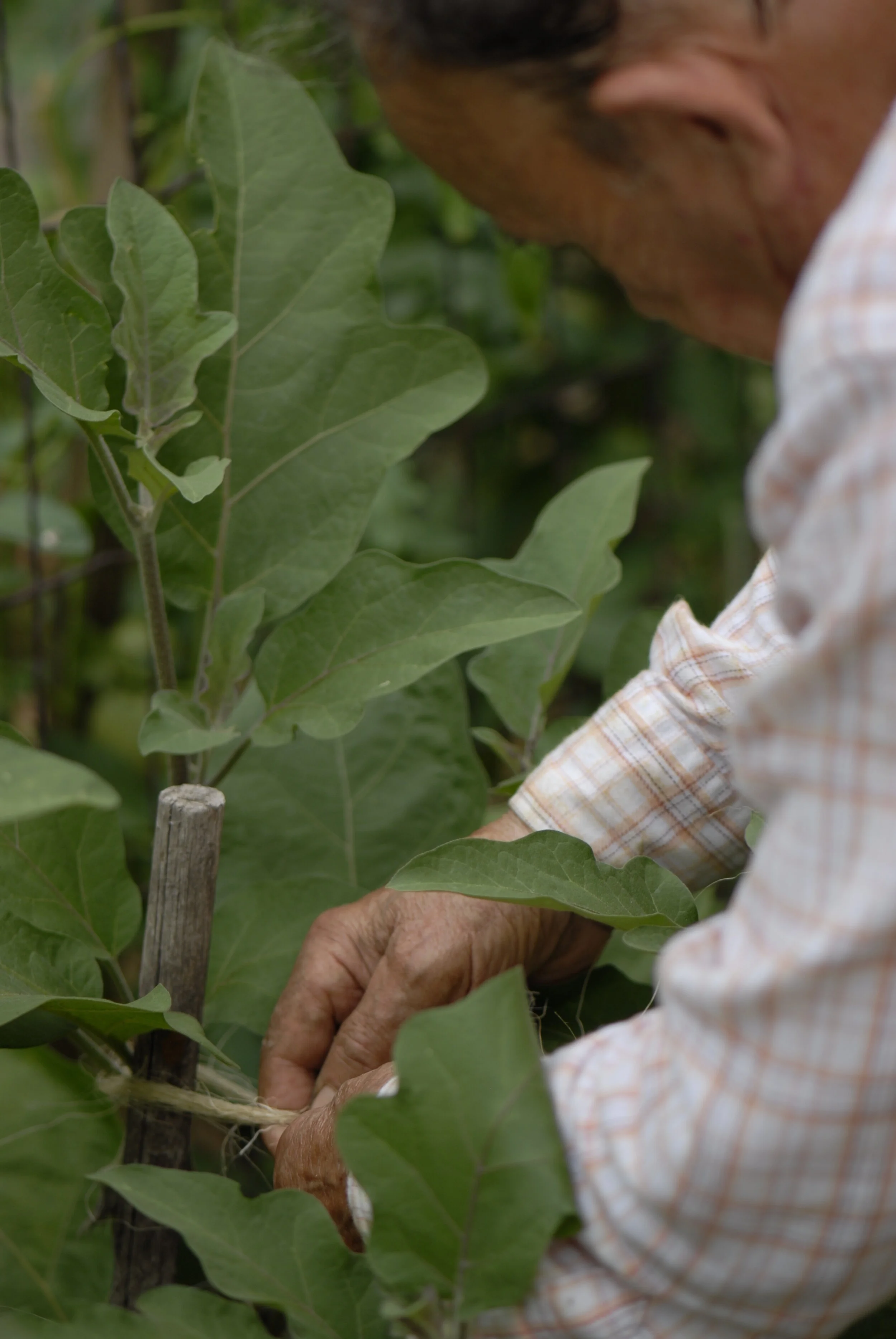The Italian Garden Project™ Explained
When I would start to look bored during the summer as a school-age child, my mother would send me out to work in the garden with my grandfather. As I picked up a hoe and hacked ineffectively at the ground, my grandfather would laugh and say “If there was a war, you people would starve.” Those “you people”, I knew, were my brothers and me and others who were the youth of the 1960’s and 70’s. He was right. Compared to this hardworking Italian immigrant from the province of Caserta, my generation was a pampered lot. We had none of the skills and knowledge to grow our own food and survive by our own hands that was required of my grandfather’s generation who had lived through much more trying times than ours. With all the years of education that most of my peers would eventually attain, we would find ourselves lacking in valuable wisdom. The question of how we had come so far from our own self-sufficiency stayed with me into my adult life.
In spite of his taunts, I adored my grandfather. I loved his heavy accent and big, calloused hand. I loved his unassuming manner and humble character. Most of all, I loved the way he loved his garden. From his love of gardening grew my own. As soon as I had my first house, I planted a garden, and when I moved to another house that had too much shade for a garden, I found myself spending time in other peoples’ gardens. My favorites were those that reminded me of my childhood, the ones with rows of tomatoes and peppers, pole beans and Swiss chard, garlic and fennel, and of course, fig trees.
The town of Sewickley, Pennsylvania where I moved has a wonderful Italian community that still gardens the traditional way and, like my grandfather, most in this community know much more about self-sufficiency than just about anyone else I’ve ever met.
Not only are these gardens interesting from the perspective of producing an abundance of vegetables, fruits and herbs, but also from an environmental and sustainability standpoint. Italian gardeners have been eco-friendly before anyone started using the term. Rain barrels, composting, seed saving – any form of conserving resources has always been a way of life for them. During these times of increasing global economic and environmental uncertainty what these gardeners have to teach us becomes ever more relevant.
From a “foodie” perspective, what are now considered gourmet foods, such as rapini and escarole, have been standard fare in the Italian garden for centuries. Heirloom tomatoes and peppers come in every shape and size.
The current emphasis on eating locally and with the seasons is an inherent part of these backyard gardens. The urban gardening movement has much to learn from their efficient use of space. Italian gardens are often tucked in small city lots, but can produce enough to feed large families. What is horticultural therapy other than what older Italians do every day when they tend their gardens, strengthening their bodies and souls. I’ll bet my grandfather didn’t know he was participating in intergenerational learning when he scolded me in the garden.
I found myself compelled to share these gardens with friends, as if I had discovered lost and precious works of art. Through our local nature center, I began giving tours of these backyard gardens. The tours became extremely popular and each was filled to capacity. Other people love being in these gardens, too. There is so much to see and learn. As the tour-goers speak with the gardeners, they are amazed at their knowledge. People marvel at how naturally and almost instinctively gardening comes to them. The gardeners, in turn, are amazed that there is such new found interest in something that they have done all their lives.
Italian American baby boomers especially enjoy being in these gardens because of the strong sense of nostalgia they evoke. Many haven’t been in one since they were children. They enjoy seeing the grape arbors and fruit trees and remembering how every scrap of cloth and lumber is used and reused.
I love giving the gardeners the recognition they deserve. It is wonderful to have the opportunity to counter the Hollywood-induced image that all Italians are involved in organized crime. These gardeners are the Italians I know, honest, hardworking people whose greatest crime is hiding a few vegetable seeds in their carry-on luggage during return trips from Italy, and even this they reveal in whispers.
I realized, though, these gardens will not be around forever. The gardeners are getting older and because Italian immigrants have always had such a strong belief in education and insist that their children focus their energy toward advancing themselves through their schooling and careers, this heritage is not being passed on as it had been for generations.
I began to feel an urgency to document and preserve this knowledge before it is lost. Out of that urgency, grew THE ITALIAN GARDEN PROJECT™. Its mission is to celebrate the joy and wisdom inherent in the traditional Italian American vegetable garden, preserving this heritage and demonstrating its relevance for reconnecting to our food, our families, and the earth.
We have sought out traditional Italian American vegetable gardens throughout the country and have begun to photograph and video them and their gardeners. This website serves as a repository of this gardening heritage.
Our vision is for TheItalianGardenProject.com to be a meaningful site, one where we can honor worthy individuals and learn from them. We want it be a place where we can continue to reflect on the question of how far we have drifted from our ability to provide for ourselves and be given the tools to do something about it. It will be a space where we can preserve important aspects of Italian American history and share the beautiful memories of our childhoods. There is much to learn if we are willing to listen, look, and remember.







